58769
|
It is undoubtedly a script that belongs to Steam Deck. Steam Deck's 21-week record of the Steam sales rankings has proved that even though mobile games have become popular all over the world, the group of handheld players has always existed. Subsequently, Asus' ROG handheld console, Sony's PS Portal, MSI's Claw handheld console, Lenovo's savior LEGION Go, etc., and related products from many major manufacturers have come one after another. Including brands such as GPD and AYANEO that have long focused on this field, the game handheld console track seems to have returned to twenty years ago, which is the hot era when Nintendo NDS and Sony PSP compete. 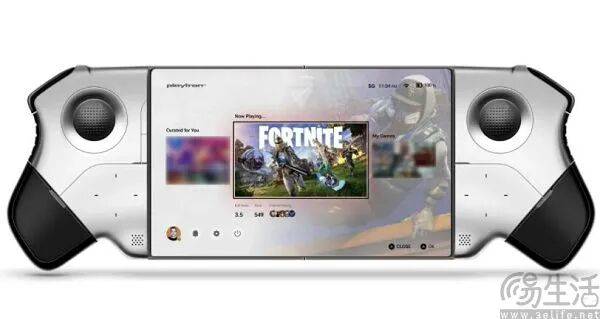 With the popularity of the handheld machine market, more and more people want to get a share of the pie. A handheld machine dedicated system called Playtron OS was officially released a few days ago, and it is expected that AYANEO will launch a product equipped with Playtron OS at the end of this year. It is reported that Playtron OS is launched by Playtron founded by Kirt McMaster, former founder of Cyanogen (a well-known third-party Android ROM). Like SteamOS, Playtron OS is also built on Linux and supports both x86 and ARM platforms. At present, there is actually no Android-like operating system in the handheld console market. The x86 handheld consoles represented by ROG handheld consoles basically use Microsoft's Windows 11 system directly, but for the convenience of players, they usually design a dedicated game center, such as the Ultron Game Intelligent Control Center of ROG handheld consoles and the Legion Space of Legion Go. The reason why Lenovo and ROG choose this strategy is very simple. After all, after removing the tile elements and even the tablet mode, Windows 11 leaves a more impression like a pure desktop-level product. 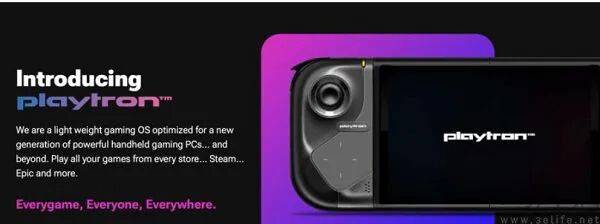 The current problem with Android handheld phones is that their performance is weak, which makes it impossible to separate from smartphones. Haven't you seen that the Logitech G Cloud game console jointly created by Tencent and Logitech now has no sound. Moreover, the competitors of Android handheld consoles are actually not x86 handheld consoles, but Android phones and tablets. Especially because the Android ecosystem has previously created a prosperous peripheral market under the catalysis of the concept of gaming phones. With the support of various game peripherals, mobile phones and tablets can also obtain a gaming experience comparable to handheld consoles. The problem with Windows 11 is that it is not optimized for mobile devices, and such devices require careful calculation of energy consumption. After all, players cannot find sockets at any time. In this way, Playtron OS, a Linux-based handheld operating system, has room for survival. If Playtron OS can really prove itself, it is very likely that it will not lack collaborators and no one will pay. 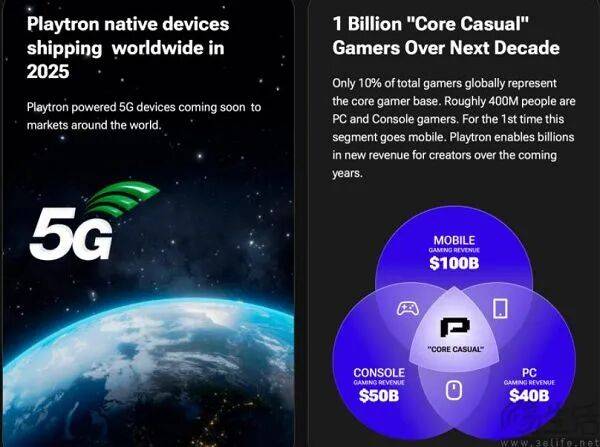 As an intermediate device, handheld consoles have portability advantages over game consoles and PCs, while smartphones have performance and control advantages. But omnipotence often represents mediocrity. After all, if you want to pursue a more extreme gaming experience, players usually choose PC or game console. If you pursue a gaming experience anytime, anywhere, a smartphone will obviously be a better choice. So, who is buying handheld machines? Of course, it is the emotional party or the fever player, and the characteristics of these groups are that they have both money and are willing to pay for the game experience. The question now is whether Playtron OS can bring a gaming experience that satisfies players? In fact, using Linux to play games is not a false proposition. In addition to determining games that natively support Linux during the development stage, it can actually play most Windows games. In fact, the Linux community's Wine project is the "behind the scenes" that implements all this. It provides a compatibility layer so that Linux can install and run Windows programs, and instead of imitating Windows' logic like an emulator, Wine converts Windows API calls into POSIX calls. 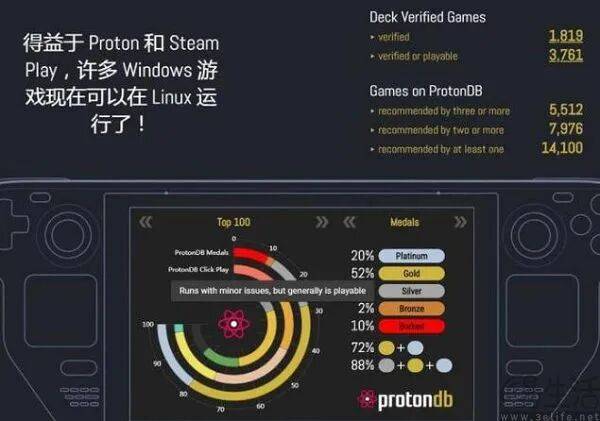 However, it is not without cost to run Windows programs with the help of Wine. Since the Windows API is not completely public, porting past programs through Wine is often not as good as those under Windows in Linux, or a lot of functions have been reduced for porting. The hero who really allows Linux to play Windows games normally is actually Valve. Steam launched the Proton plan based on Wine. In addition, Valve also sponsors vkd3d translated from DX12 to Vulkan, and dxvk translated from DX9 to DX11 to Vulkan. So it can almost be said that Valve has greatly improved the Linux gaming experience with its own efforts. The only problem is that Proton needs Steam support, which means that players cannot enjoy this convenience when purchasing games on the Epic game store and even other platforms. The biggest selling point of Playtron OS is that games purchased on the Epic game store can also run smoothly on the handheld console. However, does Playtron really have the appeal of Steam? 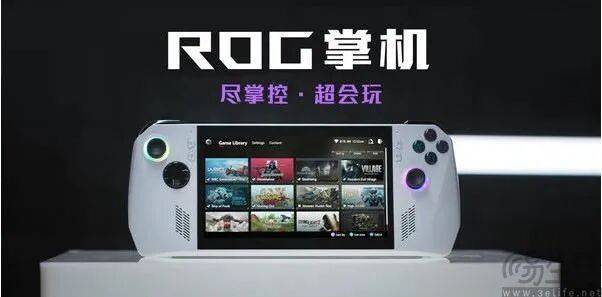 Steam's strong position in the field of digital game distribution allows Valve to enable a number of game developers to make exclusive optimizations for SteamOS. This is why Steam Deck is equipped with a custom APU with a Zen2+RDNA2 architecture, and its performance can only be compared with AMD Ryzen 4000 series APUs, but the gaming experience it provides is not inferior. There is no doubt that Playtron's position in the gaming industry is definitely not as good as Steam, and even Steam's Proton has not yet achieved 100% coverage of the Stean content library. 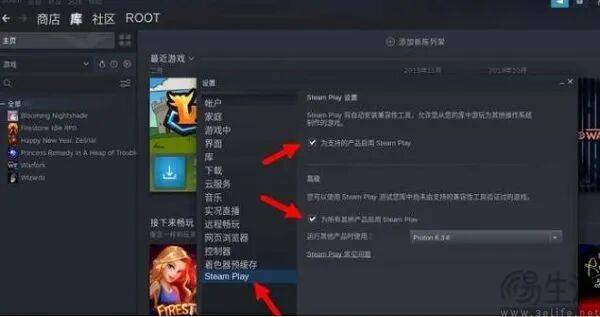 In fact, Proton is somewhat similar to Huawei's Hongmeng ecosystem in a sense. At present, they are just negotiating with third-party developers one by one, trying to gradually let developers support their own products. Obviously, if Playtron does not have a market position like Steam, it will lead to a result. The upper limit of Playtron OS will always be lower than that of SteamOS, and the latter itself is not closed. So if you want to replicate the story of Android latecomers and surpass iOS, Playtron OS may be difficult to achieve. However, although it is difficult to replace SteamOS, it can replace the current position of Windows 11 in the handheld market, and there is probably no big problem. After all, Windows 11 can be said to be the culprit for the current problem of poor battery life of the x86 handheld machine, so relevant hardware manufacturers have a certain motivation to try new operating systems. [The pictures in this article are from the Internet] Recommended reading: Incompatible with Android: HarmonyOS NEXT is released to consumers in the fourth quarter Entering the AI era: The AI function of the Chinese iPhone 16 is revealed. Google releases Android 15 new developer preview version: Optimize satellite connectivity One step ahead of others when filtering and placing an order: Antutu machine selection mini program is officially launched |